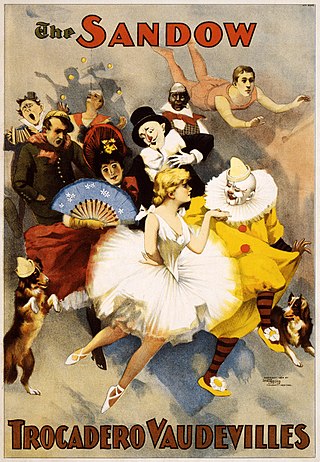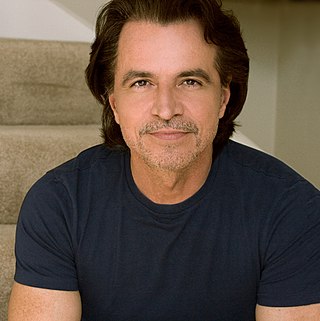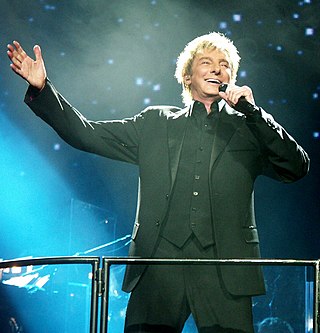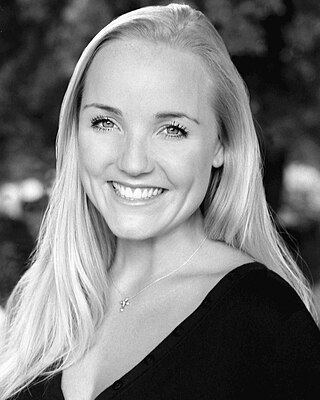Live performance may refer to:

Vaudeville is a theatrical genre of variety entertainment born in France at the end of the 19th century. A vaudeville was originally a comedy without psychological or moral intentions, based on a comical situation: a dramatic composition or light poetry, interspersed with songs or ballets. It became popular in the United States and Canada from the early 1880s until the early 1930s, but the idea of vaudeville's theatre changed radically from its French antecedent.

Opera Australia is the principal opera company in Australia. Based in Sydney, its performance season at the Sydney Opera House accompanied by the Opera Australia Orchestra runs for approximately eight months of the year, with the remainder of its time spent at the Arts Centre Melbourne, where it is accompanied by Orchestra Victoria. In 2004, the company gave 226 performances in its subscription seasons in Sydney and Melbourne, attended by more than 294,000 people.

Broadcasting is the distribution of audio or video content to a dispersed audience via any electronic mass communications medium, but typically one using the electromagnetic spectrum, in a one-to-many model. Broadcasting began with AM radio, which came into popular use around 1920 with the spread of vacuum tube radio transmitters and receivers. Before this, most implementations of electronic communication were one-to-one, with the message intended for a single recipient. The term broadcasting evolved from its use as the agricultural method of sowing seeds in a field by casting them broadly about. It was later adopted for describing the widespread distribution of information by printed materials or by telegraph. Examples applying it to "one-to-many" radio transmissions of an individual station to multiple listeners appeared as early as 1898.

Petula Sally Olwen Clark, CBE is an English singer, actress, and songwriter. She has had one of the longest careers of an English singer, spanning more than seven decades.
Score or scorer may refer to:

Yiannis Chryssomallis, known professionally as Yanni, is a Greek composer, keyboardist, pianist, and music producer.

The Secret Policeman's Ball is a series of benefit shows staged initially in the United Kingdom to raise funds for the human rights organisation Amnesty International. The shows started in 1976 featuring popular British comedians but later included leading musicians and actors. The Secret Policeman's Ball shows are credited by many prominent entertainers with having galvanised them to become involved with Amnesty and other social and political causes in succeeding years.

Elaine Jill Paige is an English singer and actress, best known for her work in musical theatre. Raised in Barnet, Hertfordshire, Paige attended the Aida Foster Theatre School, making her first professional appearance on stage in 1964, at the age of 16. Her appearance in the 1968 production of Hair marked her West End debut.

Barry Manilow is an American singer and songwriter with a career that spans seven decades. His hit recordings include "Could It Be Magic", "Looks Like We Made It", "Mandy", "I Write the Songs", "Can't Smile Without You", and "Copacabana ".
Simulcast is the broadcasting of programmes/programs or events across more than one resolution, bitrate or medium, or more than one service on the same medium, at exactly the same time. For example, Absolute Radio is simulcast on both AM and on satellite radio. Likewise, the BBC's Prom concerts were formerly simulcast on both BBC Radio 3 and BBC Television. Another application is the transmission of the original-language soundtrack of movies or TV series over local or Internet radio, with the television broadcast having been dubbed into a local language.

Michael Ashley Ball is an English singer, presenter and actor. He made his West End debut in 1985 playing Marius Pontmercy in the original London production of Les Misérables, and went on to star in 1987 as Raoul in The Phantom of the Opera. In 1989, he reached number two in the UK Singles Chart with "Love Changes Everything", a song taken from the musical Aspects of Love, where he played Alex. He played the role in London and on Broadway. His album Coming Home To You reached number one in the UK making it his 4th number one album to date. On 24 April 2020, Ball and Captain Tom Moore entered the UK Singles Chart at number one with a cover of "You'll Never Walk Alone", with combined chart sales of 82,000 making it the fastest-selling single of 2020.
Lifehouse is an unfinished science fiction rock opera by The Who intended as a follow-up to Tommy. It was abandoned as a rock opera in favour of creating the traditional rock album Who's Next, though its songs would appear on various albums and singles by the Who, as well as Pete Townshend's solo albums. In 1978, aspects of the Lifehouse project were revisited by the Who on Who Are You. In 2000, Townshend revived the Lifehouse concept with his set Lifehouse Chronicles and the sampler Lifehouse Elements. On 1 May 2007, he released an online software called The Lifehouse Method in which any "sitter" could create a musical "portrait". The site is now defunct.
Friday Night Is Music Night is a long-running live BBC radio concert programme featuring the BBC Concert Orchestra, broadcast on the BBC Light Programme and its successor BBC Radio 2 since 1953. The programme is the world's longest-running live orchestral music radio programme.
Music television is a type of television programming which focuses predominantly on playing music videos from recording artists, usually on dedicated television channels broadcasting on satellite, cable, or Streaming Platforms.
Lillias White is an American actress and singer. She is particularly known for her performances in Broadway musicals. In 1989 she won an Obie Award for her performance in the Off-Broadway musical Romance in Hard Times. In 1997 she won the Tony Award for Best Featured Actress in a Musical and Drama Desk Award for Outstanding Featured Actress in a Musical for portraying Sonja in Cy Coleman's The Life. She was nominated for a Tony Award again in 2010 for her work as Funmilayo in Fela Kuti's Fela!.

Kerry Jane Ellis is an English actress and singer who is best known for her work in musical theatre and subsequent crossover into music. Born and raised in Suffolk, Ellis began performing at an early age before training at Laine Theatre Arts from the age of 16.
The Apollo was a music venue at 126 Renfield Street in Glasgow city centre, Scotland. The Apollo operated from 5 September 1973 until closure on 16 June 1985 and was Glasgow's leading music venue during this period. The Apollo was a re-brand of the previous Green's Playhouse in the same building.
The Paris Theatre was originally a cinema located at 12 Lower Regent Street in central London which was converted into a studio by the BBC for radio broadcasts requiring an audience. It was used for several decades by the BBC as the main venue for comedy programmes broadcast on BBC Radios 2 and 4.
Live may refer to:

The COVID-19 pandemic has had a significant impact on the performing arts, mirroring its impacts across all arts sectors. Due to physical distancing requirements and closure of the physical venues, curtailing not only public performances but also rehearsals, many performing arts institutions attempted to adapt by offering new digital services. In particular this resulted in the free online streaming of previously recorded performances of many companies – especially orchestral performances and plays – lists of which were collated by journalists as well as bespoke crowdsourcing projects.